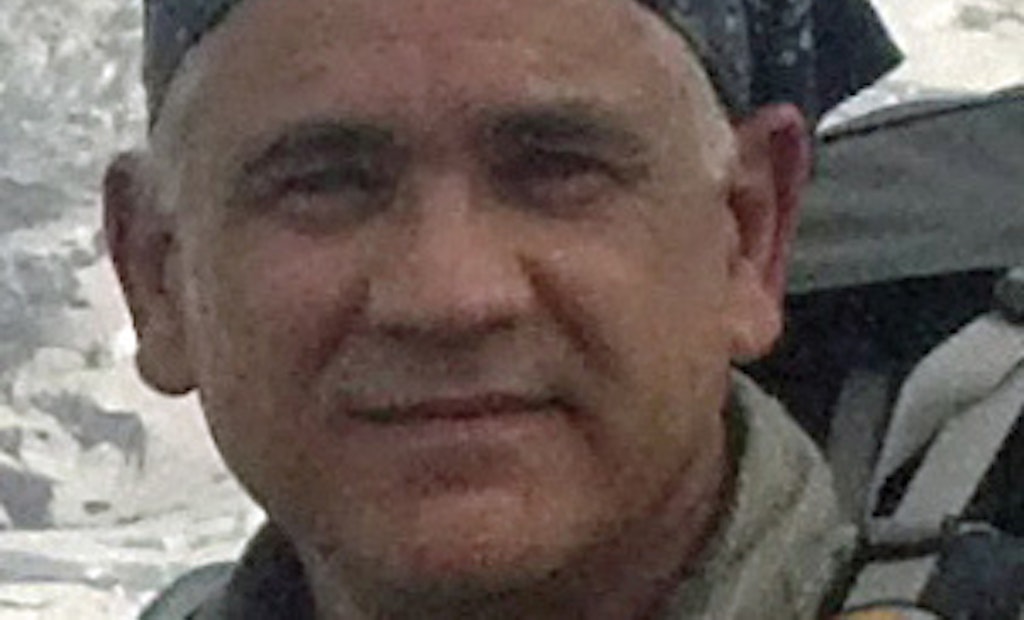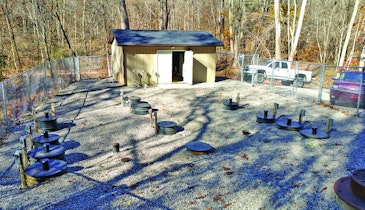Interested in Education/Training?
Get Education/Training articles, news and videos right in your inbox! Sign up now.
Education/Training + Get AlertsFormed in 1990 in response to a lawsuit challenging the right of local health departments to certify licensed designers, the Washington On-Site Sewage Association now provides education and representation to the entire decentralized wastewater industry. The state’s pumper organization merged with WOSSA in 1998 to round out the membership, led by Executive Director John Thomas since 2002.
How is licensing done in Washington?
Thomas: Designers have a limited practice engineering license from the state Department of Health. Installers, pumpers and those who maintain and inspect septic systems have specialty contractor licenses from local health jurisdictions on a county-by-county basis.
For the installers, pumpers and system maintainers, a big step was WOSSA’s program for multiple county licensing. Instead of passing exams in every county they work, our program allows them to take one test that is recognized by all the counties in the program. We have 14 major health jurisdictions and are working to add the rest.
What is WOSSA’s role in the training?
Thomas: Our training center has been in place since the late ‘90s and provides education for onsite wastewater professionals and training on the approved technologies. We also partner with major manufacturers on certification classes for their proprietary technologies. A lot of the training is driven by local health jurisdiction requirements for continuing education, but we promote “continuous learning” to keep everyone on top of their game. We offer two online training courses and have plans for more. We have more than 300 registered online learners.
Our Licensed Designer Mentoring Program is recognized by the Department of Licensing. They can take our classes and work with licensed designers in a mentoring capacity to gain the field experience they need to sit for the state exam. More than half of the 225 licensed designers are over 55 years old. The law passed 10 years ago requires four years of a college-level curriculum or a mix of two years and field experience. The expectation that colleges or universities would offer wastewater design as part of their curriculum didn’t occur so we had a gap in what is required and what is available. Our curriculum is the only one available.
WOSSA is also certified for injured worker retraining through the Department of Labor and Industry, which has grants for people who get hurt on the job to be trained in a new career. We have people who are getting older or have a bad backs or knees. They want to stay in the industry but shift their focus to something like design or inspection that doesn’t have the same physical demands.
What role does WOSSA have in the area of the legislature and rule-making?
Thomas: We both lobby and advise. We worked to pass a bill allowing the state to manage our industry as part of the other 22,000 licensed engineers in the state rather than treating us separately. That lowered our annual licensing fee of $325 to $75.
We successfully opposed bills that would have reduced O&M inspection requirements on homeowners and would have negatively impacted designers and installers using proprietary manufacturer’s devices.
We work with local health departments to identify training needs. We’re working with three local health jurisdictions on pump truck inspections. If you’re a pumper who works in multiple counties, you have to have your truck inspected by each county. We now have a WOSSA inspection program that can be recognized by all local health agencies.
You offer scholarships for your members’ children, how does that work?
Thomas: For a small association [450 members] our board has approved $100,000 that we’ve distributed to the children of our members to support their college education. The scholarships vary from $5,000 to $500. The amount we give changes depending on how successful we are in fundraising. We give away half of what we raise and put the other half into an endowment fund … approximately $110,000.
One of the other unique things is the way we manage it. Rather than a board committee, we decided to contract our application and screening to a company called Scholarship America. This ensures a “clean hands” approach to the selection process. They do a great job and we’d recommend this approach.
Do you do anything in the way of community outreach?
Thomas: Two years ago, the board approved an outreach program to provide the septic design, installation and materials for families in need. Last May, we got a request to help a young woman whose husband died in a construction accident. They had no insurance coverage. She had a little girl and was pregnant with their second child. They were about three-quarters done building their new home. We did all the work to get her a $14,000 pressure distribution system so they could complete the home.
We also did outreach to provide information to people in the environmentally sensitive Puget Sound. WOSSA had a radio show for almost two years funded with advertising support from major manufacturers like Bio-Microbics, Orenco and Infiltrator along with some of the local pumping companies and designers. It was a weekly, one-hour show that we had a lot of fun with. We brought in industry people to talk about different topics and provide expert advice. It was very well received.
What’s on the horizon for the industry in Washington?
Thomas: We have a debate with the Department of Revenue over the taxation of fees. Homeowners aren’t assessed sales tax when they pay a fee directly to the local health jurisdiction, but they are if the septic service provider collects the fee and transmits it to the local health jurisdiction. We have engaged legal assistance to help us with that.
We’re also bringing forward a bill to require cities to allow septic systems to be replaced if they fail. Current law requires such homeowners to hook up to the sewer system if it’s within 200 feet and not cost prohibitive. An amount equal to or greater than the value of the property doesn’t seem to be cost prohibitive to some towns and cities. We’ve had a couple of cases where people were going to be forced out of their homes because their choice was to spend $150,000 to connect to the sewer or abandon the property, when an onsite system could be installed for $12,000.
We continue to work through the process, but one of the most surprising things we discovered is that most of the environmental groups have deep misconceptions about decentralized wastewater and its ability to produce clean effluent. Our top treatment levels in Washington exceed the treatment standard for sewage treatment plants with direct discharge into the Puget Sound. Helping them understand that is another big job … we need them as partners, not adversaries.






